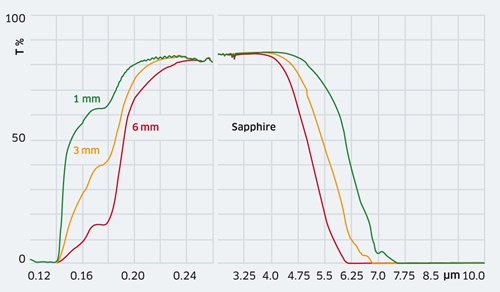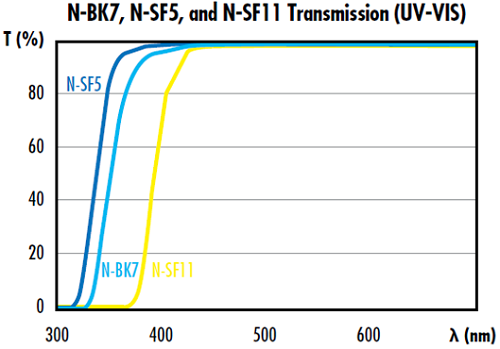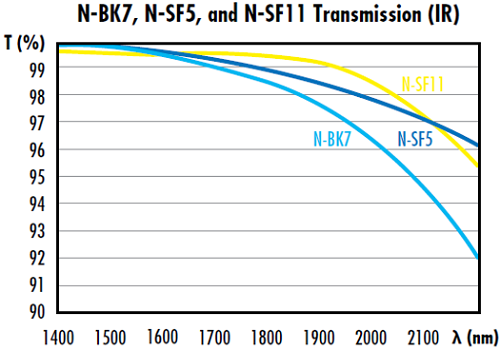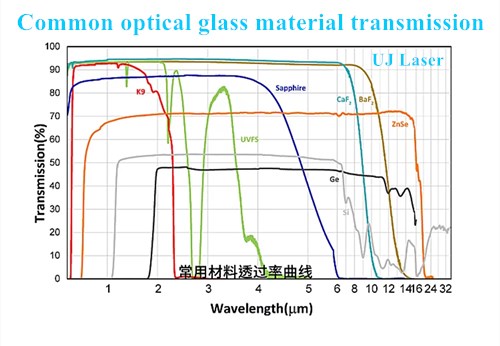News
Common Optical Glass Material For Laser
1. BK7
BK7 is an excellent general purpose material widely used in visible and NIR optical components.
BK7 is a borosilicate crown optical glass.
Transmission Range: 330nm~2100nm
Thermal Expansion Coefficient: 7.5X10-6 /K
Density: 2.52 g/cm3
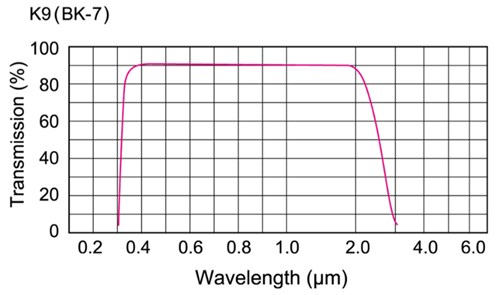
2. Fused Silica
Fused silica is a widely used material with high chemical purity, good thermal characteristics and excellent homogeneity.
Very good thermal expansion characteristic is an outstanding feature of fused silica. Fused Silica is primarily used in wider thermal application.
Fused silica includes UV grade and IR grade.
Typical index Homogeneity:<8 x 10-6
Thermal Expansion Coefficient: 0.58 x 10-6/K (0℃to 200℃)
Density: 2.201 g/cm3
We default to use chinese fused silica, there are mainly three types of fused silica, JGS1, JGS2, JGS3, they are used for different application. Please refer to below for details.
JGS1 is mainly used for optics operating in the UV and the visible wavelength range. It is free of bubbles and inclusions. It is equivalent to Suprasil 1&2 and Corning 7980.
JGS2 is mainly used as mirror substrate, as it has tiny bubbles inside. It is equivalent to Homosil 1, 2&3.
JGS3 is transparent in the ultraviolet, visible and infrared spectral regions, but it has many bubbles inside. It is equivalent to Suprasil 300.
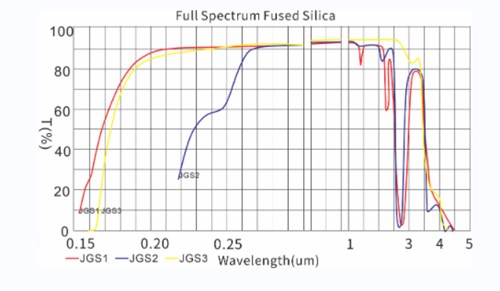
3. Sapphire
Sapphire is a single crystal aluminum oxide (Al2O3). Its Mohs hardness is 9, it is one of the hardest materials.
Sapphire has good mechanical strength, and it is also transparent from UV to IR spectrum.
So, it is always used as window material where scratch resistance is required.
Lattice Constant: a=4.75 A; c=12.97A
Transparent Range: 180nm ~ 4500nm
Density: 3.98g/cm3
Mohs Hardness: 9
Melting Point: 2030℃
Thermal Conductivity: 0.04W/m/K
Expansion Coefficient: 8.4x10-6/K
Refractive Index: 1.755@1um
